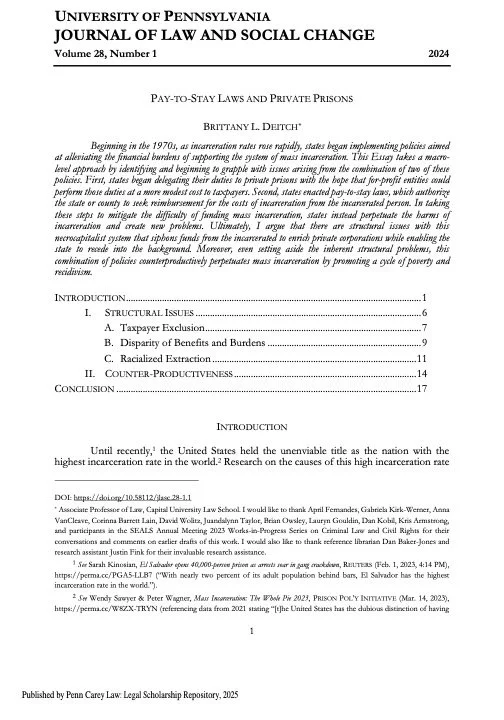By Campaign Zero
This report examines the practice of pay-to-stay fees, which involves charging individuals—both adults and youths—in correctional facilities for costs relating to their incarceration. Pay-to-stay fees not only affect individuals during their time of incarceration but can also result in post-release debt. While the report considers the overarching issues with pay-to-stay fees broadly, it looks more specifically at the imposition of room and board and medical fees at the state level for incarcerated adults and youths serving a sentence. Based on an in-depth literature review, discussions with other researchers, and interviews with people directly impacted by pay-to-stay fees, we argue that these fees are highly problematic for several reasons. Specifically, pay-to-stay fees: Impose excessive financial burdens on incarcerated individuals and their families, many of whom are already economically strained before and during incarceration; Serve as significant barriers to accessing basic goods and services during incarceration, such as medical care; Hinder successful reentry after a person has served their sentence; and Are ineffective fiscal policies that fail to generate significant revenue or meaningfully impact states’ budgets. Despite the lasting harms that pay-to-stay fees pose, these policies are pervasive across the country. Based on our analysis of qualitatively coded state statutes and corrections department policies related to pay-to-stay fees between June 2022 and December 2023, we found that 48 states allow for the imposition of at least one category of pay-to-stay fees 26 states explicitly allow for both room & board and medical fees for both adults and youths who are incarcerated Only the states of California and Illinois have repealed fees for all categories in state correctional facilities Given the widespread prevalence of pay-to-stay fees, we conclude the report by urging correctional systems and state & local governments across the country to explicitly ban the imposition of these fees and work towards dismantling the broader web of legal fines and fees that trap individuals in cycles of incarceration and debt.
Campaign Zero, 2025, 33p.



